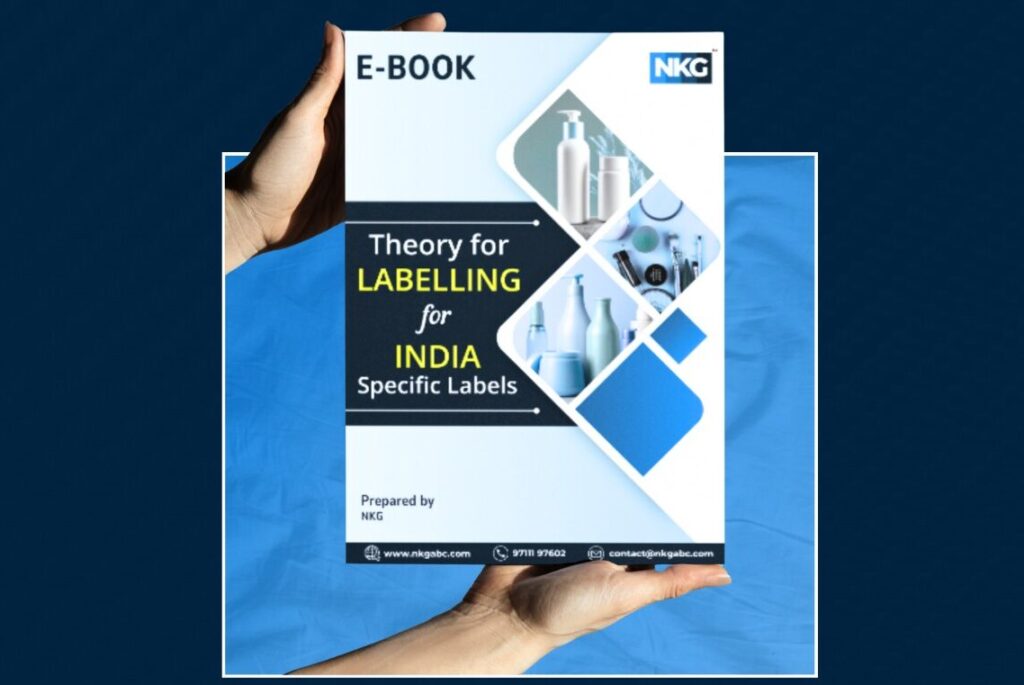Sanitary product manufacturers were not required to disclose the ingredients used in their packaging because they were considered medical products in India. Guidelines for sanitary napkins, including how to use them and which side is absorbent, were provided by the Bureau of Indian Standards in 1980. Nevertheless, testing the toxicity of ingredients is not required. Concerns regarding the chemicals used in Indian sanitary pads and their potential to cause harmful health effects, such as cancer, have been raised due to the lack of regulations. Knowing the ingredients in hygienic napkins is essential for women because they use them a lot throughout their lives—a woman typically uses between 11,000 and 17,000 of these. Because sanitary napkins are a common household item and part of every woman’s life, they cannot be categorized as a medical product, which would excuse the manufacturer from disclosing the ingredients. Despite reports exposing the presence of dangerous chemicals in sanitary napkins and their effect on women’s health, the Indian government has not undertaken enough research or quality control checks on the product.
1) Introduction
Ensuring the safety and quality of products such as reusable sanitary pads, disposable baby diapers, and sanitary napkins is crucial for personal hygiene products. The Bureau of Indian Standards (BIS) has set strict guidelines that manufacturers must follow to accomplish this.
The Indian government’s Ministry of Textiles has issued an order requiring all sanitary napkins and diapers used in India, whether domestically produced or imported from overseas, to bear the Bureau of Indian Standards Standard Mark under a current BIS license.
To put it briefly, all sanitary napkin and diaper manufacturers, whether based in India or abroad, must now apply for a BIS license and obtain a valid BIS certification license before the order’s deadline of October 1, 2024, for small and micro enterprises, and April 1, 2024, for all other manufacturers.
Beginning on April 1, 2024, BIS Certification for Sanitary Napkins will be required by Indian Standards IS 5405:2019. Menstrual hygiene for women requires sanitary napkins because they offer comfort and protection during the period. Essential rules and standards are established by the Bureau of Indian Standards (BIS) to guarantee the efficacy, safety, and quality of the goods sold in India. As the national standards body, BIS is essential in setting the standards for a range of products, including sanitary napkins, to protect women’s health and encourage innovation and quality in the sector. The main objective of BIS standards is to ensure that hygienic napkins satisfy particular requirements for absorption, comfort, safety, and hygiene. These requirements cover material choice, absorbency levels, thickness, breathability, and the lack of hazardous materials.
2) Definition of Sanitary Napkin
An absorbent material called a sanitary napkin collects fluids lost during menstruation. It offers superior hygiene and leak protection compared to cloth and other materials (husks, ashes, etc.) used during menstruation. The specifications for disposable (non-reusable) sanitary napkins intended for external use are covered by this standard. Sanitary napkins can be customized to the buyer’s specifications or come in various forms and designs, such as tab-less or with wings. The supplier and the buyer will determine the size of the sanitary napkins. Sanitary serviette sizes will vary based on absorbent capacity, buyer needs, and wing characteristics. The main specifications for sanitary napkins include pH value, biocompatibility, biodegradability, hygiene, and the capacity to withstand pressure after absorption.
3) BIS Certification Scheme
The Indian government created the Bureau of Indian Standards Certification Scheme as a crucial framework to guarantee the dependability, safety, and quality of goods sold in the country. By establishing strict standards and requirements that products must fulfill to be considered compliant, this scheme seeks to protect the interests of consumers. BIS certification encompasses the whole spectrum of industrial and manufacturing activity, covering a wide range of products and industries. BIS-ISI certification is necessary for many product categories, including electronics, home appliances, safety glasses, etc.
All of 2024 will see the implementation of the impacted standards. For many kinds of medical textiles, BIS certification will be required. The BIS Standards, IS 5405, IS 17509, and IS 17514, provide a thorough framework with multiple quality requirements that diapers and sanitary napkins must meet.
Below is a summary of the impacted product categories, along with the anticipated dates of implementation for new standards and mandatory BIS certification:
No. | Good or article | Indian Standard | Title of Indian Standard | Timeline for Implementation |
1 | Sanitary Napkins | IS 5405:2019 | Sanitary Napkins – Specification (second revision) | For Small & Micro Enterprises (SME) –October 1, 2024 For Others – April 1, 2024 |
2 | Baby Diaper | IS 17509:2021 | Disposable Baby Diaper – Specification | |
3 | Reusable Sanitary Pad | IS 17514:2021 | Reusable Sanitary Pad/ Sanitary Napkin/ Period Panties -Specification | |
4 | Shoe Covers | IS 17349:2020 | Medical Textiles – Shoe Covers – Specification | April 1, 2024 |
5 | Dental Bib/ Napkins | IS 17354:2020 | Medical textiles – Dental Bib or Napkins – Specification | |
6 | Bedsheets and Pillow Covers | IS 17630:2021 | Medical Textiles – Bed Sheets and Pillow Covers -Specification |
4) Step by Step Process of BIS Certification:
- Standard Identification: Based on the product category they have selected, manufacturers determine which BIS standard is applicable. These standards specify the precise performance, safety, and quality requirements the product must fulfill.
- Application Submission: Manufacturers send the Bureau of Indian Standards (BIS) an application for BIS certification, outlining the product’s attributes, required certification marks, and specifications.
- Factory Inspection: To evaluate the infrastructure, quality control procedures, and compliance with pertinent standards, BIS inspects the manufacturer’s production facility.
- Sample Testing: BIS obtains product samples from the manufacturer to conduct tests in accredited testing facilities or authorized BIS laboratories. These tests assess the different BIS standard parameters.
- Certification Decision: BIS determines whether to certify a product based on the product’s compliance with standards and positive test results. The manufacturer receives a BIS certification license if they are accepted.
- Frequent Monitoring: BIS monitors the production of certified goods by conducting recurring audits and market surveillance to ensure that quality control procedures and standards are followed.
5) Documents Required
- Trademark certificate, if one has been formally registered.
- Documents for Factory Registration.
- Report on laboratory testing by product standards.
- Internal Testing Resources.
- A visual representation of the production process.
- Information about the Designated Representative and any relevant supporting documentation.
Conclusion:
Implementing mandatory BIS-ISI certification for textiles, particularly sanitary napkins and diapers, marks a significant step towards ensuring the safety, quality, and efficacy of personal hygiene products in India. Sanitary napkins, disposable diapers, and reusable sanitary pads must be BIS-certified to guarantee the quality and safety of these personal hygiene products. Manufacturers who achieve BIS certification provide top-notch products. The BIS-ISI certification scheme for medical textile products represents a pivotal measure towards enhancing consumer confidence, fostering industry accountability, and ensuring the well-being of individuals who rely on these essential products for their health and hygiene needs.







